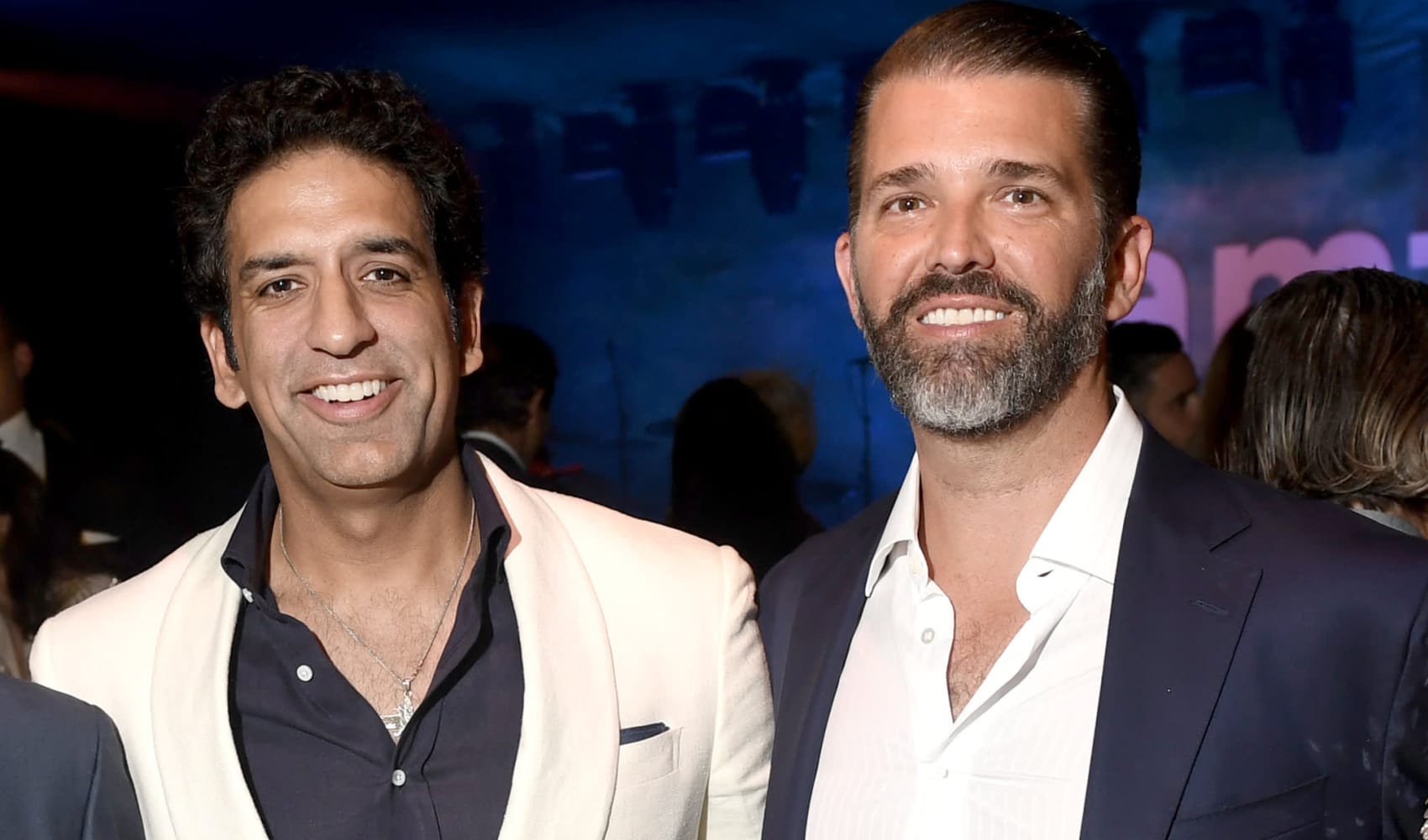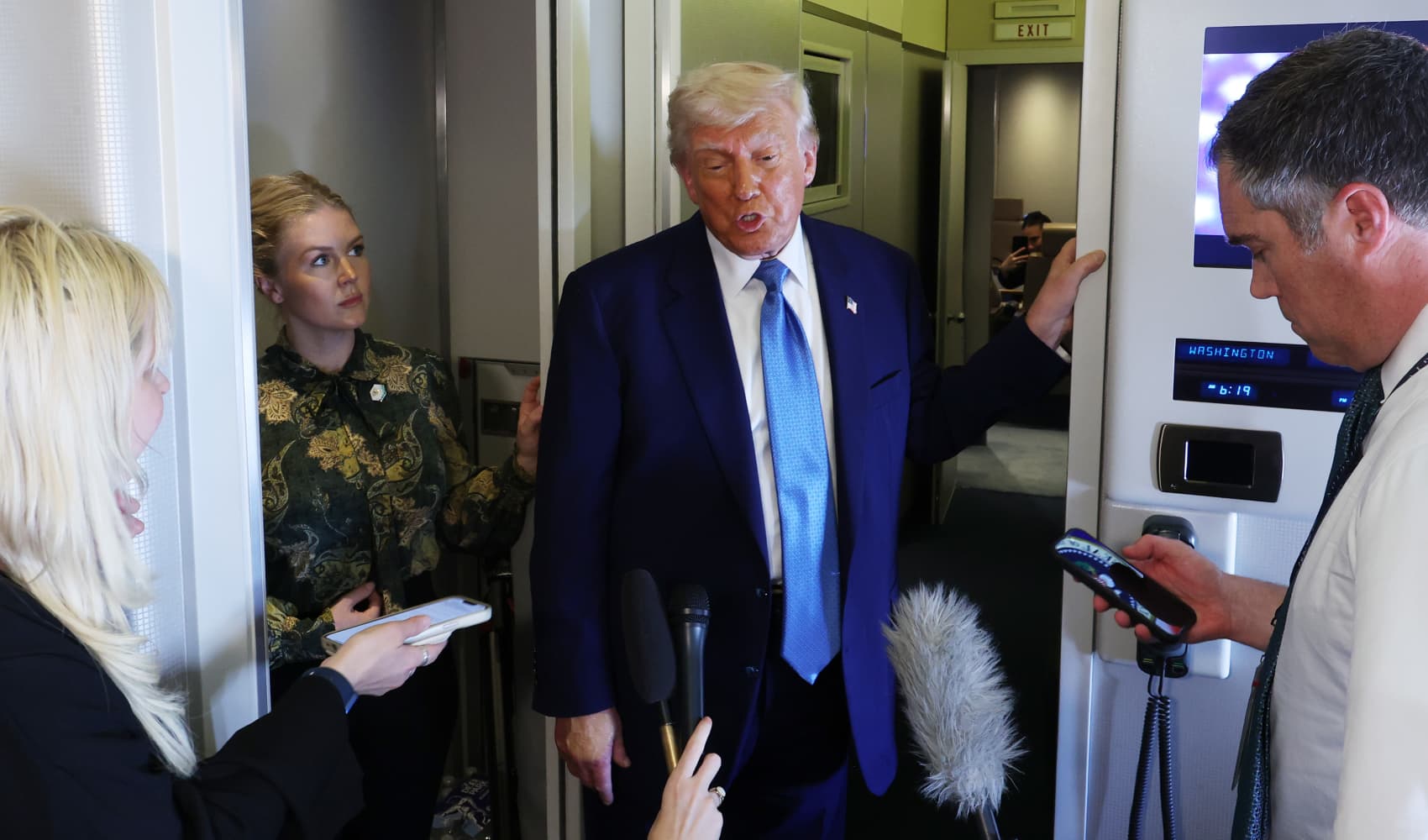Trump Jr.'s $500K Club: Inside the Exclusive Executive Branch
Executive Branch: Inside Donald Trump Jr.'s $500,000 Private Club
Introduction: The New Power Hub in DC?
Ever wondered where the movers and shakers of Washington D.C. hang out after a long day of, well, moving and shaking? A new player has entered the game: Executive Branch, a private members club co-founded by Donald Trump Jr., is making waves. But here's the kicker: membership will set you back a cool $500,000. Yes, you read that right. Half a million dollars. Is this the new epicenter of power, influence, and networking in the capital? Let's dive in and explore what exactly Executive Branch is, who it's for, and why it's commanding such a hefty price tag.
Executive Branch: What We Know So Far
While details are still emerging, here’s what we’ve gathered about this exclusive establishment:
The Co-Founder
It's no surprise that Donald Trump Jr., son of former President Donald Trump, is a key figure behind this venture. Given his extensive network and experience in business and politics, his involvement certainly lends the club a certain cachet (or perhaps controversy, depending on your perspective).
The Price Tag: $500,000 and Counting
That's not a typo. A half-million-dollar membership fee places Executive Branch firmly in the ultra-exclusive category. What do you get for that price? We'll explore the potential perks and benefits further down.
Location, Location, Location: Georgetown
The club is slated to open in the Georgetown neighborhood, known for its historic charm, upscale boutiques, and proximity to prominent government buildings and embassies. This prime location undoubtedly adds to its allure.
A Buzzworthy Launch Party
The launch party, held on Saturday, attracted a who's-who of Washington D.C. insiders, including members of the former Trump administration, CEOs, tech founders, and policy experts. This demonstrates the club's ambition to become a nexus for influential individuals from various sectors.
Who's Joining the Executive Branch?
With such a high barrier to entry, who exactly is Executive Branch targeting? It's safe to assume the club is aimed at:
High-Net-Worth Individuals
Obviously. A $500,000 membership fee instantly filters out 99.9% of the population. We're talking about people with significant disposable income and a desire to network with others in their league.
Political Insiders and Lobbyists
Given the Trump family's political connections, it's likely that Executive Branch will attract individuals involved in politics and lobbying. The club could provide a discreet space for networking and deal-making.
Business Leaders and Entrepreneurs
The launch party attendance suggests that Executive Branch is also targeting successful entrepreneurs, CEOs, and business leaders. The club could offer opportunities for collaboration, investment, and access to valuable resources.
The Allure of Exclusivity: Why Private Clubs Thrive
Why are private clubs so popular, even in the digital age? It boils down to a few key factors:
Creating a Curated Community
Private clubs offer a sense of belonging and camaraderie. They bring together individuals with shared interests, values, and aspirations. Think of it as a highly selective social network, but in the real world.
Privacy and Discretion
In a world of constant scrutiny, private clubs provide a sanctuary where members can relax, network, and conduct business without the prying eyes of the public. Discussions can be more candid, and relationships can be forged in a more intimate setting.
Access to Exclusive Amenities and Experiences
Beyond the social aspects, private clubs often offer access to premium amenities, such as fine dining, concierge services, and members-only events. These perks can enhance the overall experience and justify the high membership fees.
What Does $500,000 Buy You? Potential Perks and Privileges
While the specifics of Executive Branch's offerings remain under wraps, here are some potential perks and privileges that could justify the hefty price tag:
Premier Networking Opportunities
The ability to connect with influential individuals from various fields is arguably the biggest draw. Imagine having a dedicated space to meet potential investors, collaborators, and mentors.
Luxury Amenities and Services
Expect top-notch dining, curated events, personalized concierge services, and access to exclusive travel experiences. Think of it as a five-star hotel with a built-in social network.
Political Access (Perceived or Real)
Given the Trump family's political connections, membership in Executive Branch might offer perceived or real access to political figures and policy makers. This could be a significant draw for lobbyists and businesses seeking to influence government decisions.
Controversy and Criticism: Ethical Considerations
The emergence of Executive Branch has not been without its critics. Concerns have been raised about:
Potential for Influence Peddling
Some worry that the club could become a hub for influence peddling, where wealthy individuals and corporations gain preferential treatment from politicians in exchange for financial support or access.
Exacerbating Social Inequality
The exorbitant membership fee underscores the growing divide between the haves and have-nots. Critics argue that such exclusive clubs further isolate the elite and perpetuate social inequality.
Ethical Conflicts of Interest
If current or former government officials become members, there could be concerns about ethical conflicts of interest. It's crucial to ensure transparency and accountability to prevent any abuse of power.
The D.C. Private Club Scene: A Crowded Market?
Executive Branch is entering a D.C. market already populated by established private clubs. What will make it stand out? Can it differentiate itself enough to justify its premium price point?
Competing with Existing Establishments
The city boasts several well-established private clubs, each with its own unique character and membership base. Executive Branch will need to offer something truly special to lure members away from these existing establishments.
The "Trump" Factor: A Blessing or a Curse?
The association with the Trump family could be both a blessing and a curse. It will undoubtedly attract some members, but it could also alienate others who disagree with the former president's policies and rhetoric.
The Future of Executive Branch: Will It Thrive?
Only time will tell whether Executive Branch will succeed in its ambitious endeavor. Its success will depend on its ability to:
Deliver on its Promises
The club must provide exceptional value to its members. The networking opportunities, amenities, and experiences must live up to the hype and justify the $500,000 price tag.
Maintain Discretion and Privacy
The club must create a secure and confidential environment where members feel comfortable sharing ideas and building relationships. Any leaks or breaches of privacy could damage its reputation.
Navigate Ethical Challenges
The club must adhere to the highest ethical standards and avoid any appearance of impropriety. Transparency and accountability are essential to maintaining public trust.
The Bigger Picture: The Rise of Exclusive Experiences
Executive Branch is part of a larger trend: the growing demand for exclusive experiences and personalized services. In an age of mass production and commoditization, people are increasingly seeking unique and curated offerings that cater to their specific needs and desires. This trend is driving the growth of luxury travel, bespoke goods, and, of course, private membership clubs.
From Mass Market to Niche Experiences
We're moving away from a one-size-fits-all approach and towards a more personalized and customized world. People want experiences that reflect their values, interests, and aspirations.
The Value of Time and Convenience
In today's fast-paced world, time is a precious commodity. People are willing to pay a premium for services that save them time and effort, whether it's grocery delivery, personal shopping, or access to a private club that handles all the details.
Conclusion: A New Era of Elite Networking?
Executive Branch represents a bold and ambitious venture, aiming to create a new hub for power and influence in Washington D.C. While the $500,000 membership fee may seem exorbitant to most, it's likely to attract a select group of individuals who value exclusivity, networking, and access to premium amenities. Whether it succeeds in its mission remains to be seen, but one thing is certain: Executive Branch has already sparked a debate about the role of private clubs in shaping the political and social landscape.
Frequently Asked Questions (FAQs)
Here are some common questions people are asking about Executive Branch:
1. What exactly does the $500,000 membership fee cover?
The specific details of what the membership fee covers haven't been fully disclosed yet. However, it likely includes access to the club's facilities, exclusive events, concierge services, and networking opportunities. It's best to contact Executive Branch directly for a comprehensive breakdown.
2. How do I apply for membership?
Given the exclusivity of the club, the application process is likely to be selective and involve a vetting process. Contact Executive Branch for details on how to apply and what criteria they use to evaluate potential members.
3. Is there a monthly or annual fee in addition to the initial $500,000?
It is highly probable that there are additional monthly or annual dues beyond the initial membership fee to cover operational costs and ongoing services. Inquire with the club for specific pricing details.
4. What types of events and programs will Executive Branch offer?
While the specific events and programs are still under development, it's anticipated that Executive Branch will host networking events, speaker series, private dinners, and exclusive travel experiences tailored to its members' interests and professional goals.
5. How will Executive Branch address potential ethical concerns related to political influence?
The club will likely need to implement clear guidelines and policies to prevent any unethical or illegal activities. Transparency, compliance with lobbying regulations, and a commitment to ethical conduct are crucial for maintaining the club's integrity and public trust.




